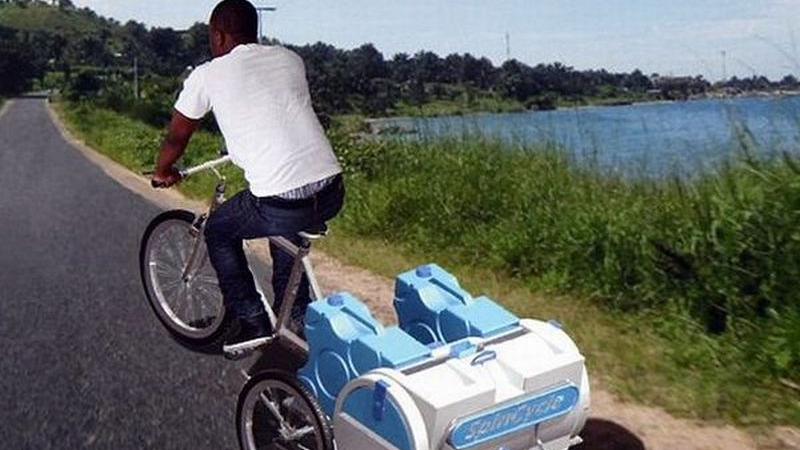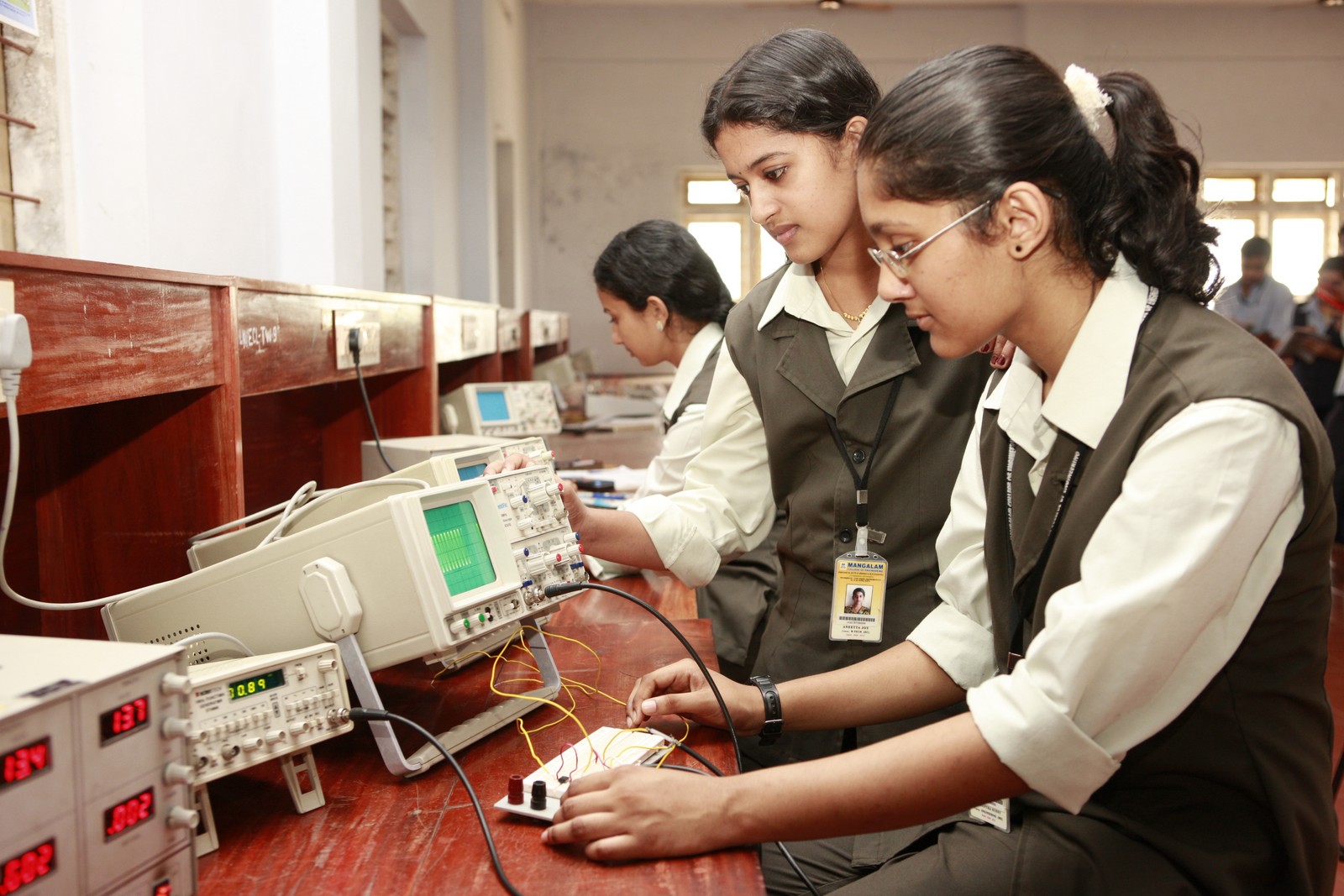
Nel mondo delle lavatrici completamente automatiche, SpinCycle potrebbe non essere il modo ideale per fare il bucato. Ma Richard Hewitt, un ex studente di product design alla Sheffield Hallam University, spera che la sua lavatrice a pedali possa essere il prodotto perfetto per le persone nei paesi in via di sviluppo.
Si carica il dispositivo con vestiti, detersivo e acqua, quindi lo si inserisce sul retro di un triciclo. Poi pedala per dieci minuti. Il prossimo passo è scaricare e riempire con acqua di risciacquo prima di un'altra sessione di pedalata di dieci minuti per completare il lavaggio. Lo stesso metodo può essere utilizzato anche per centrifugare i vestiti una volta puliti.
Richard è stato ispirato a costruire lo SpinCycle dopo aver visitato un orfanotrofio per bambini in Burundi, in Africa. Uno dei suoi compiti all'orfanotrofio era lavare a mano circa 30 carichi di vestiti per bambini. Era estremamente dispendioso in termini di tempo e Richard pensò che doveva esserci un modo più semplice.
Avendo notato che le persone lì intorno usavano molto le biciclette, Richard ha avuto l'idea di SpinCycle, qualcosa che potrebbe diventare una microimpresa per le persone. "Oltre a risparmiare molto tempo, energia e acqua, le persone potrebbero anche essere in grado di guadagnare un po' di soldi in questo modo", ha spiegato. Ha detto che aveva preso in considerazione molti altri modi per farlo funzionare in modo efficiente. "Ho cercato di trasformarlo in un rimorchio per una bicicletta, ma aveva più senso renderlo un'unità completa", ha detto.
"Rimuovendo gli aspetti estetici, il design potrebbe essere facilmente semplificato e reso più economico."
Il design è stato esposto come parte della mostra "CreativeSpark" di Sheffield Hallam. Ha anche vinto il premio Shell LiveWIRE Grand Ideas per gennaio 2012. SpinCycle prevede di creare una fabbrica per fabbricare il prodotto in Africa e distribuirlo attraverso una serie di enti di beneficenza e ONG per raggiungere le comunità che non hanno accesso all'elettricità, dando loro un metodo alternativo per lavare i panni.
In the world of fully-automatic washing machines, the SpinCycle may not be the ideal way of getting your laundry done. But Richard Hewitt, a former product design student at Sheffield Hallam University, is hoping that his pedal-powered washing machine may just be the perfect product for people in developing countries.
You load the device with clothes, detergent and water, and then fit it onto the back of a tricycle. Then pedal for ten minutes. The next step is to drain and fill with rinse water before another ten-minute pedalling session to complete the wash. The same method can also be used to spin dry the clothes once they are clean.
Richard was inspired to build the SpinCycle after visiting a children’s orphanage in Burundi, Africa. One of his tasks at the orphanage was to wash around 30 loads of children’s clothes by hand. That was extremely time consuming and Richard thought that there must be an easier way.
Having noticed that people around there used bikes a lot, Richard came up with the idea of SpinCycle – something that could become a micro-enterprise for people. ‘As well as saving a lot of time, energy and water, people might also be able to make a little bit of money this way’, he explained. He mentioned that he had considered several other ways of making it work efficiently. ‘I looked at making it into a trailer for a bicycle but it made more sense to make it a complete unit,’ he said.
‘By removing the aesthetic aspects the design could easily be simplified and made cheaper.’
The design was exhibited as part of Sheffield Hallam’s ‘CreativeSpark’ exhibition. It also won the Shell LiveWIRE Grand Ideas Award for January 2012. SpinCycle plans to set up a factory to manufacture the product in Africa and distribute it through a range of charities and NGOs to reach communities that do not have access to electricity, giving them an alternative method of washing clothes.

Startup
A startup or start-up is a company or project undertaken by an entrepreneur to seek, develop, and validate a scalable business model. While entrepreneurship refers to all new businesses, including self-employment and businesses that never intend to become registered, startups refer to new businesses that intend to grow large beyond the solo founder. At the beginning, startups face high uncertainty and have high rates of failure, but a minority of them do go on to be successful and influential. Some startups become unicorns; that is privately held startup companies valued at over US$1 billion.
Actions
Startups typically begin by a founder (solo-founder) or co-founders who have a way to solve a problem. The founder of a startup will begin market validation by problem interview, solution interview, and building a minimum viable product (MVP), i.e. a prototype, to develop and validate their business models. The startup process can take a long period of time (by some estimates, three years or longer), and hence sustaining effort is required. Over the long term, sustaining effort is especially challenging because of the high failure rates and uncertain outcomes. Having a business plan in place outlines what to do and how to plan and achieve an idea in the future. Typically, these plans outline the first 3 to 5 years of your business strategy.
Design principles
Models behind startups presenting as ventures are usually associated with design science. Design science uses design principles considered to be a coherent set of normative ideas and propositions to design and construct the company's backbone. For example, one of the initial design principles is "affordable loss".
- Log in to post comments